Do you know the origin and history of ice drop coffee? how do you describe the taste of ice drop coffee?
Professional coffee knowledge exchange more coffee bean information please follow the coffee workshop (Wechat official account cafe_style)
For more boutique coffee beans, please add private Qianjie coffee on Wechat. WeChat account: qjcoffeex
The difference between ice drop coffee and hot water coffee is that if you brew coffee in hot water, no matter how much you adjust the parameters, no matter how much you adjust the parameters, the final coffee will have a bitter taste, which is inevitable.
Because when we brew coffee powder with hot water or steam, it releases a chemical called "tannin", which brings bitter taste to the coffee. Sometimes we can't drink it in hand-brewed coffee because the substance is diluted in a large proportion and the performance is not obvious, while other pressurized brewing methods are relatively obvious.
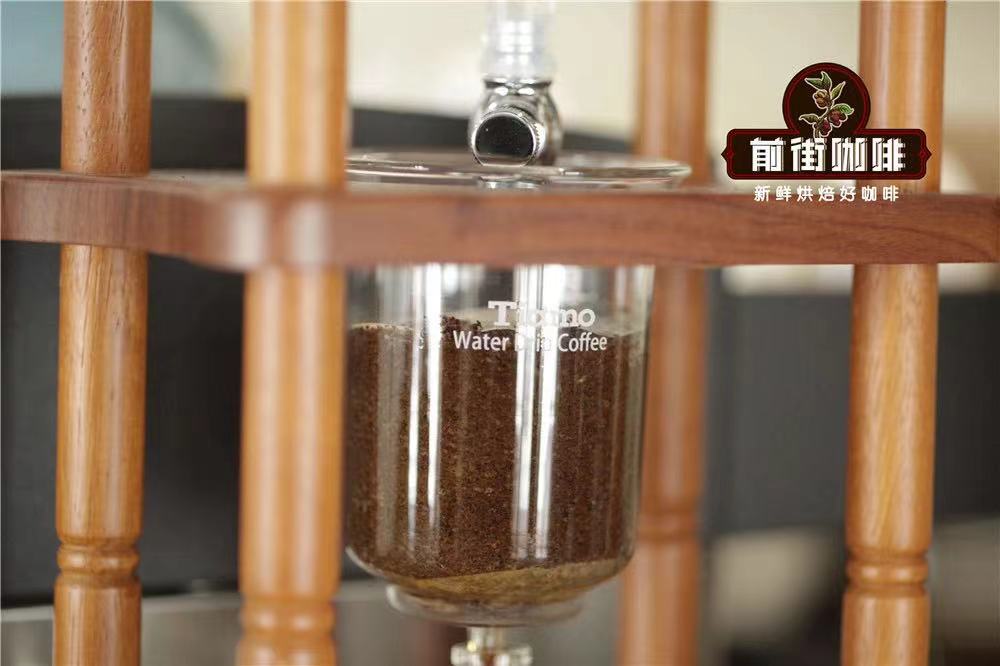
On the other hand, because ice drop coffee uses very low temperature water to extract coffee powder, and because there is no hot molecular movement, the bitter substance in coffee powder is not easy to release, so the coffee produced can not only completely avoid the annoying bitterness, but also stimulate the sweetness of the coffee itself.
The Historical Origin of Ice drop Coffee
Ice drop coffee originated in Europe, because the coffee distiller was invented by the Dutch, so some people call it Dutch Coffee.
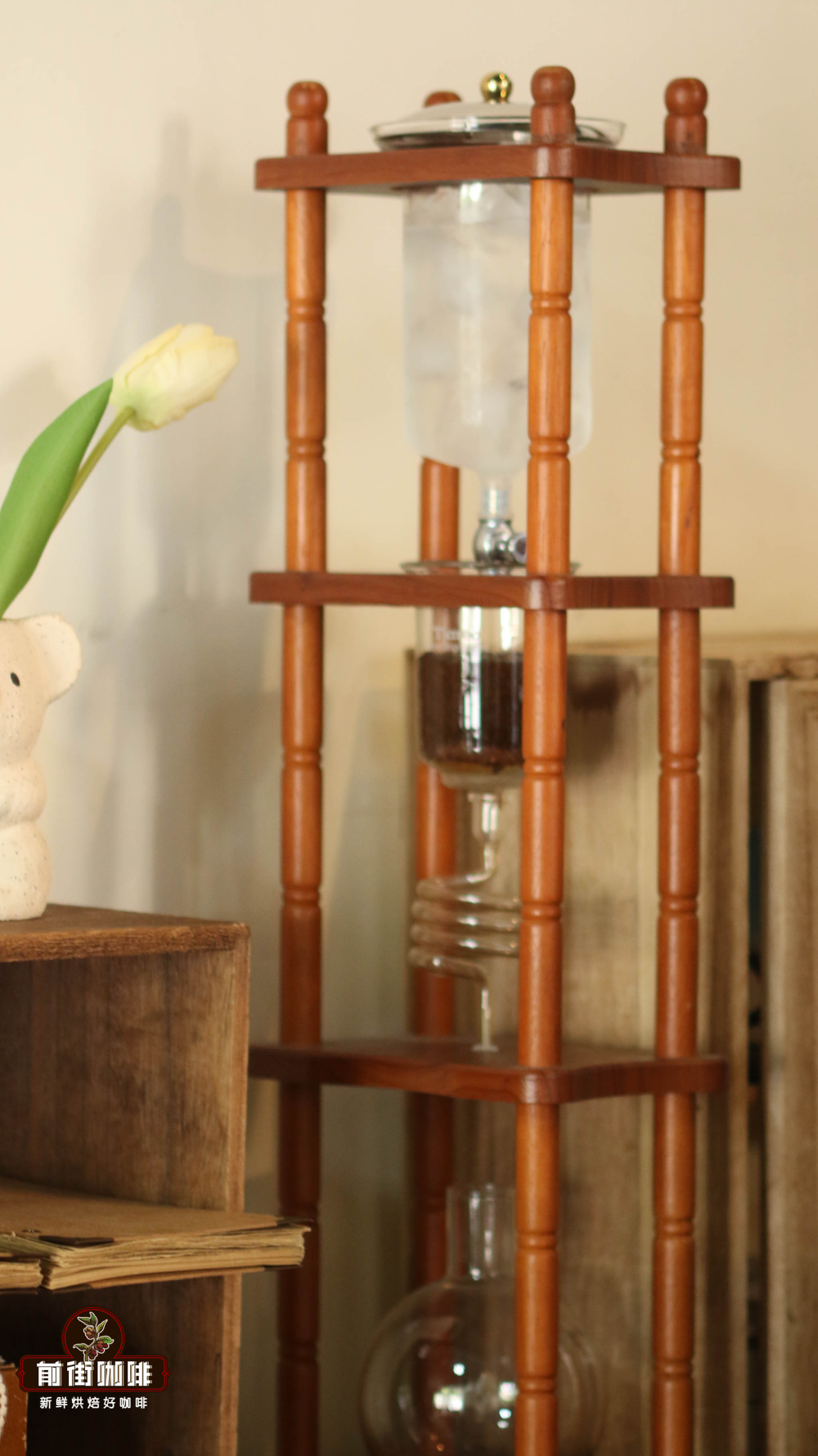
At the beginning, the reason why the Netherlands wanted to brew coffee in cold water was to reduce the sour taste in the coffee. They thought that the reason why the coffee they drank would cause stomach discomfort was that there were too many sour substances in the coffee. Therefore, brewing in cold water can avoid the sour taste of coffee (because the acidic fat of coffee is less easily dissolved by cold water).
Description of the taste of ice drop coffee
Without sour substances, the taste of iced coffee will of course be clean and smooth. According to Qianjie coffee daily dripping ice drop coffee, using medium-shallow-poisoned roasted coffee beans to make, the sweet and sour feeling in the coffee will be very full, there is no bitter, sour feeling, the whole is clean and refreshing, the taste is rich and full.
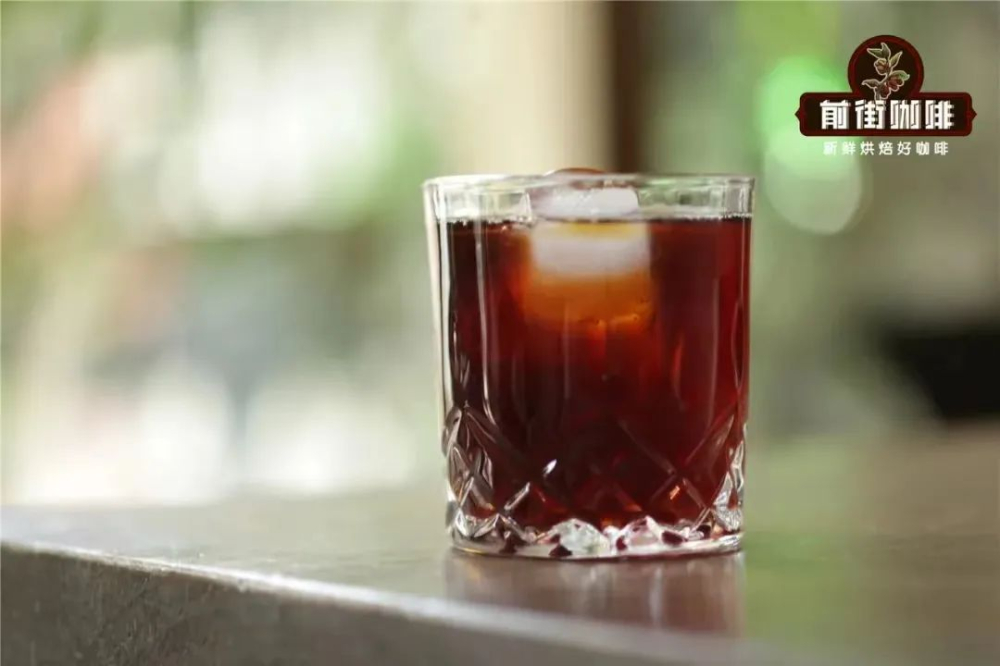
Coffee beans for making iced coffee are recommended.
As mentioned above, low temperature extraction of coffee can not effectively extract mellow substances, so Qianjie Coffee recommends that people use sour coffee beans to make cold extract / ice drop coffee. For example, medium-light roasted coffee beans / specially treated coffee beans are suitable for the production of ice extract coffee.
Qianjie Coffee sells ice drop coffee every day. Usually use Honduran Sydney coffee beans (fermented wine, vanilla cream, nutty flavor), Ethiopian Yega shedding coffee beans (citrus, honey, green tea flavor), Ethiopian Sidamo Fakui coffee beans (compound berry juice, rose, black tea flavor), Panamanian butterfly summer coffee beans (white flower flavor, citrus flavor, honey flavor, green tea flavor), Costa Rican strawberry sugar coffee beans (strawberry hard candy, raisins, fermented flavor) These coffee beans are characterized by rich aroma / sweet and sour beans, very refreshing iced coffee made in summer.
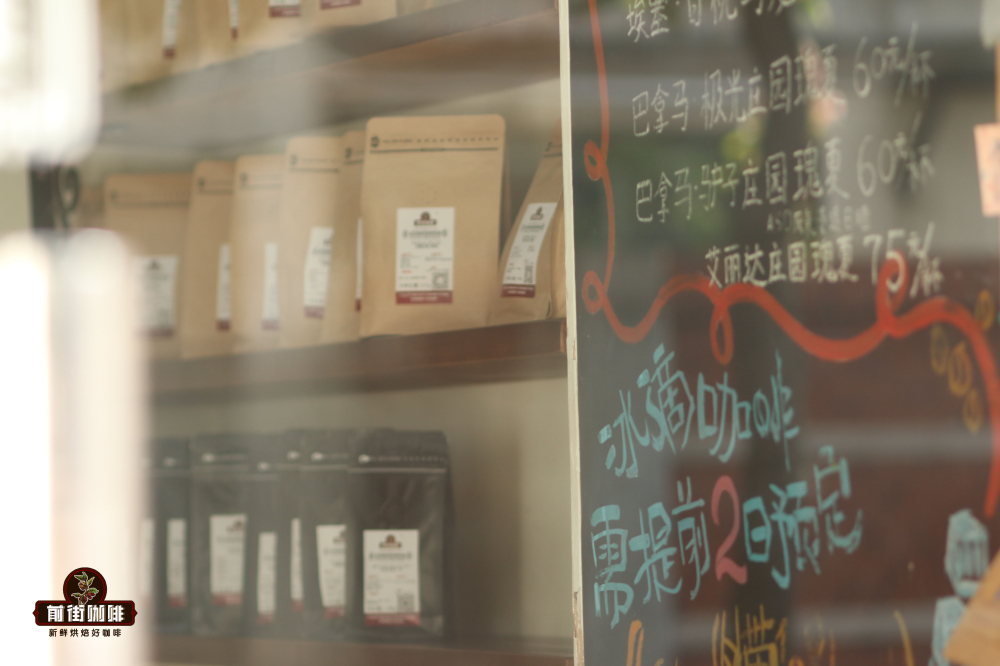
I'd like a nice iced coffee! Be sure to use freshly roasted coffee beans. As long as it is properly preserved, the coffee beans within 5-35 days after the roasting date will have rich aroma and flavor, and the iced coffee will be more layered. Therefore, all coffee beans sold in Qianjie Coffee are sent out within 5 days after the roasting is completed, ensuring that the coffee beans received by the partners are 100% fresh roasted.
Important Notice :
前街咖啡 FrontStreet Coffee has moved to new addredd:
FrontStreet Coffee Address: 315,Donghua East Road,GuangZhou
Tel:020 38364473
- Prev
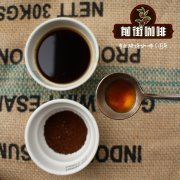
What is the moisture content of coffee beans? how to test the water content of coffee beans?
Professional coffee knowledge exchange more information about coffee beans Please pay attention to the moisture content of coffee beans in the coffee workshop (Wechat official account cafe_style), which is essential for high quality coffee. It will not only affect the taste of coffee, the way it is roasted, but also affect the income of coffee farmers. Coffee moisture content: although green beans may feel dry before roasting, they still contain
- Next

What's bulletproof coffee? How to drink bulletproof coffee to lose weight is harmful to the body?
Professional coffee knowledge exchange More coffee bean information Please pay attention to coffee workshop (Weixin Official Accounts cafe_style) What is bulletproof coffee? Could it be some new military invention of the United States, coffee that can be bulletproof after drinking it? Apparently, bulletproof coffee is actually a diet coffee. As for why we should call defense
Related
- Beginners will see the "Coffee pull flower" guide!
- What is the difference between ice blog purified milk and ordinary milk coffee?
- Why is the Philippines the largest producer of crops in Liberia?
- For coffee extraction, should the fine powder be retained?
- How does extracted espresso fill pressed powder? How much strength does it take to press the powder?
- How to make jasmine cold extract coffee? Is the jasmine + latte good?
- Will this little toy really make the coffee taste better? How does Lily Drip affect coffee extraction?
- Will the action of slapping the filter cup also affect coffee extraction?
- What's the difference between powder-to-water ratio and powder-to-liquid ratio?
- What is the Ethiopian local species? What does it have to do with Heirloom native species?

